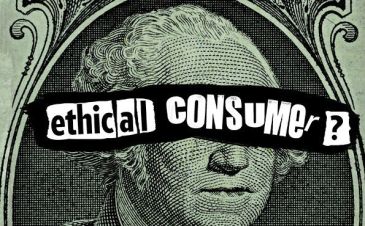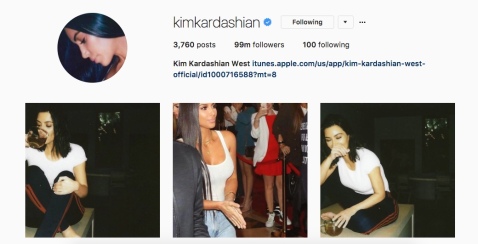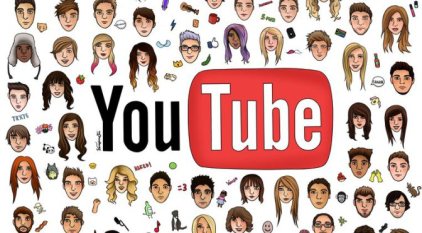
Every day we are faced with hundreds of choices; which brand of milk? What type of face wash? Which bottle of shampoo?
In recent years, these decisions have become less focused on which one performs better, or which one is cheaper. Consumers are starting to base their decisions on which product is better for the environment, or which product isn’t produced in sweat shops (Coles, 2014). We, as consumers are becoming more aware of the choices we make, with the intention to purchase goods that are ethically produced (Coles, 2014).
So, what is ethical consumption? Well, Auger (2006, p. 79) defines this idea as “the conscious and deliberate choice to make certain consumption choices due to personal and moral beliefs”.

Increased ethical consumption all comes down to our greater access to information (Ward 2011, p. 400). We have google at the touch of our fingertips. Therefore, when making decisions we can be informed (Ward 2011, p. 400). People aren’t just turning vegan because it’s the trendy thing to do, they are doing it because of a post they read on facebook about animal testing or a video they watched on YouTube about the meat industry (Meager, 2016).
Hence, ethical consumption is rapidly growing. As we become more in touch with the world around us, our awareness of global issues has increased. Companies are now realising the importance of doing the right thing and being corporately responsible because if they aren’t, there is no return (Farrow, 2015). Social media loves a good roast, particularly on companies who fail to be ethical. For example, you may remember seeing people’s comments on facebook about the Volkswagon emissions scandal.
The company installed software on their cars to ‘trick’ the machines that test emissions, in order to maker the cars appear environmentally friendly (BBC 2015). When, in fact, the emissions the cars produced was above the legal limit (BBC 2015). Social media enabled the news of this scandal to be spread like rapid fire. As a result, the company lost roughly $1.58 billion in profits, the first loss the company has experienced in 15 years (BBC 2015). VW have a lot of work to do to try and regain the trust of their customers…

People obviously stopped buying cars from VW because they saw friends posting about it on facebook, or read it in the news, and because societies attitude towards VW changed drastically. Would you want to be seen driving a car that was associated with such outrageous behaviour?
Our access to information and how it has become so readily available is changing not only the way consumers shop, but also the way companies sell. Due to our newfound awareness of ethical issues, companies are using ethical practices as a way to increase market share (Farrow, 2015). Thus, not only our access to information has increased, our access to ethical goods has also increased.

Big name brands such as ASOS, H&M and Timberland have begun producing and including ethical lines (Green, 2011). The spread of ethical consumption or production in clothing retailers has evolved following the aftermath of the Bangladesh tragedy (Kahn, Rodrigues & Balaubramanian, 2016 p. 4).
Also, the introduction of Apps and websites such as Good on You, help consumers make ethical decisions by rating clothing retailers on their ethical practice. This is another example of how our increased access to information has increased ethical consumption.

Studies have shown that consumers are even prepared to pay more provided that their purchase has been produced ethically, bringing even more motivation for companies to do the right thing (Kahn, Rodrigues & Balaubramanian 2016, p. 6).
References:
Asos, n.d., image, viewed 4 May 2017, <www.asos.com/au/women/?r=1>
Auger, P 2006, ‘Ethical Consumerism: Reality or Myth?’, The Melbourne Review, vol. 2, no. 1, pp. 78-83.
BBC 2015, ‘Volkswagen pushed into loss by emissions scandal’, BBC NEWS, 28 October, viewed 2 May 2017 <www.bbc.com/news/business-34650233>.
Coles, H 2014, ‘Are consumers becoming more aware of environmentally sound business?’, Business Green, viewed 2 May 2017 <www.businessgreen.com/bg/sponsored/2364029/are-consumers-becoming-more-aware-of-environmentally-sound-business>.
Farrow, G 2015, ‘The rise of the conscious consumer’, NZ Herald, 6 January, viewed 2 May 2017, <www.nzherald.co.nz/element-magazine/news/article.cfm?c_id=1503340&objectid=11382530>
Good On You, n.d., image, viewed 4 May 2017, <www.goodonyou.eco>
Kahn, Z Rodrigues, G Balaubramanian, S 2016, ‘Ethical consumerism and apparel industry – towards a new factor model’, paper presented at the 33rd International Business Research Conference, University of Wollongong in Dubai, 4-5 January, viewed 2 May 2017, <www.researchgate.net/publication/289976744_ETHICAL_CONSUMERISM_AND_APPAREL_INDUSTRY_-_TOWARDS_A_NEW_FACTOR_MODEL channel=doi&linkId=5693c45208ae820ff0727fbf&showFulltext=true>
Meager, D 2016, ‘This is why millenials are all turning vegan’, Munchies, viewed 2 May 2017, <www.munchies.vice.com/en_uk/article/this-is-why-millennials-are-all-turning-vegan>
Nuvo, 2016, image, viewed 4 May 2017, <www..nuvo.net/news/business/how-ethical-consumption-can-change-corporate-behavior/article_b390ad64-8523-5f7e-af9a-12d55bf8fab7.html>
Slapwank, 2015, image, viewed 4 May 2017, <www.slapwank.com/best-funny-vw-emissions-scandal-memes>
Vegan Society, n.d., image, viewed 4 May 2017, <www.vegansociety.com/take-action/ask-vegan-trademark>
Ward, J de Vreese, C 2011, ‘Political consumerism, young citizens and the internet’, Media, Culture and Society Journal, vol. 33, no. 3, pp. 399-413.



